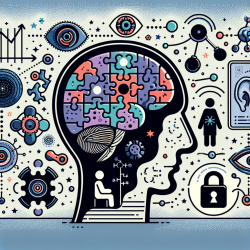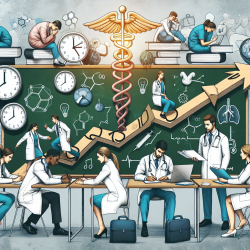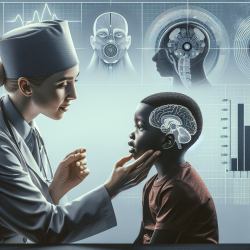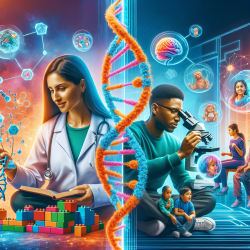Introduction
In the ever-evolving field of speech-language pathology, staying abreast of the latest research is crucial for practitioners aiming to deliver the best outcomes for children. The inaugural annual special section of the Intellectual and Developmental Disabilities Research Centers (IDDRCs) provides invaluable insights into developmental cognitive neuroscience and its implications for neurodevelopmental disorders. This blog explores how practitioners can harness these insights to improve therapeutic interventions and outcomes for children with intellectual and developmental disabilities (IDDs).
The Power of Multidisciplinary Research
The IDDRCs, established through the Mental Retardation Facilities and Community Health Centers Construction Act of 1963, have been at the forefront of multidisciplinary research in IDDs. These centers have catalyzed advancements in molecular biology, developmental neuroscience, and neurogenetics, which are crucial for understanding and treating IDDs. For speech-language pathologists, this means access to cutting-edge research that can inform evidence-based practices.
Key Findings from the Special Section
The special section highlights several key areas of research that are particularly relevant for practitioners:
- Innovations in neuroimaging for infants at high risk for autism, providing early detection opportunities.
- Functional imaging of memory systems, aiding in the understanding of cognitive impairments.
- Mechanisms underlying language learning, which can inform targeted interventions.
- Neural networks implicated in learning disabilities, offering insights into tailored therapeutic approaches.
Implications for Practice
For practitioners, the insights from this research can be transformative. Here are some ways to implement these findings:
- Early Intervention: Utilize neuroimaging and genetic testing to identify developmental delays early, enabling prompt intervention.
- Personalized Therapy: Leverage understanding of neural networks and language learning mechanisms to tailor therapy to individual needs.
- Collaborative Approaches: Engage in multidisciplinary collaborations to enhance therapeutic strategies and outcomes.
Encouraging Further Research
While the current research offers significant insights, it also highlights the need for ongoing investigation. Practitioners are encouraged to engage with the research community, participate in studies, and contribute to the growing body of knowledge. By doing so, they can help drive innovation and improve outcomes for children with IDDs.
Conclusion
The research presented in the IDDRCs' special section underscores the importance of data-driven, multidisciplinary approaches in speech-language pathology. By integrating these insights into practice, practitioners can enhance their skills and deliver better outcomes for children. To read the original research paper, please follow this link: Inaugural annual special section of the intellectual and developmental disabilities research centers: developmental cognitive neuroscience and neurodevelopmental disorders.










